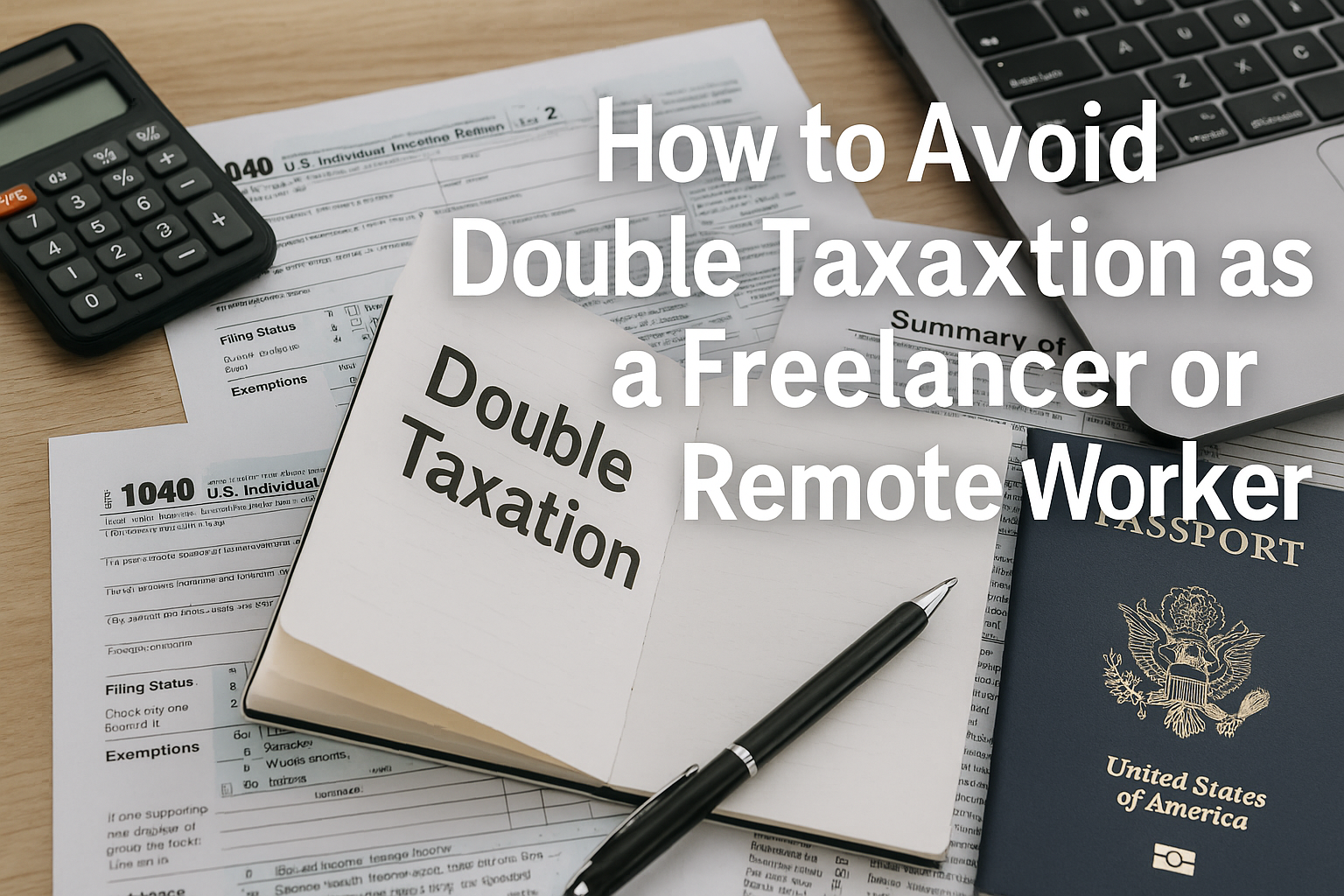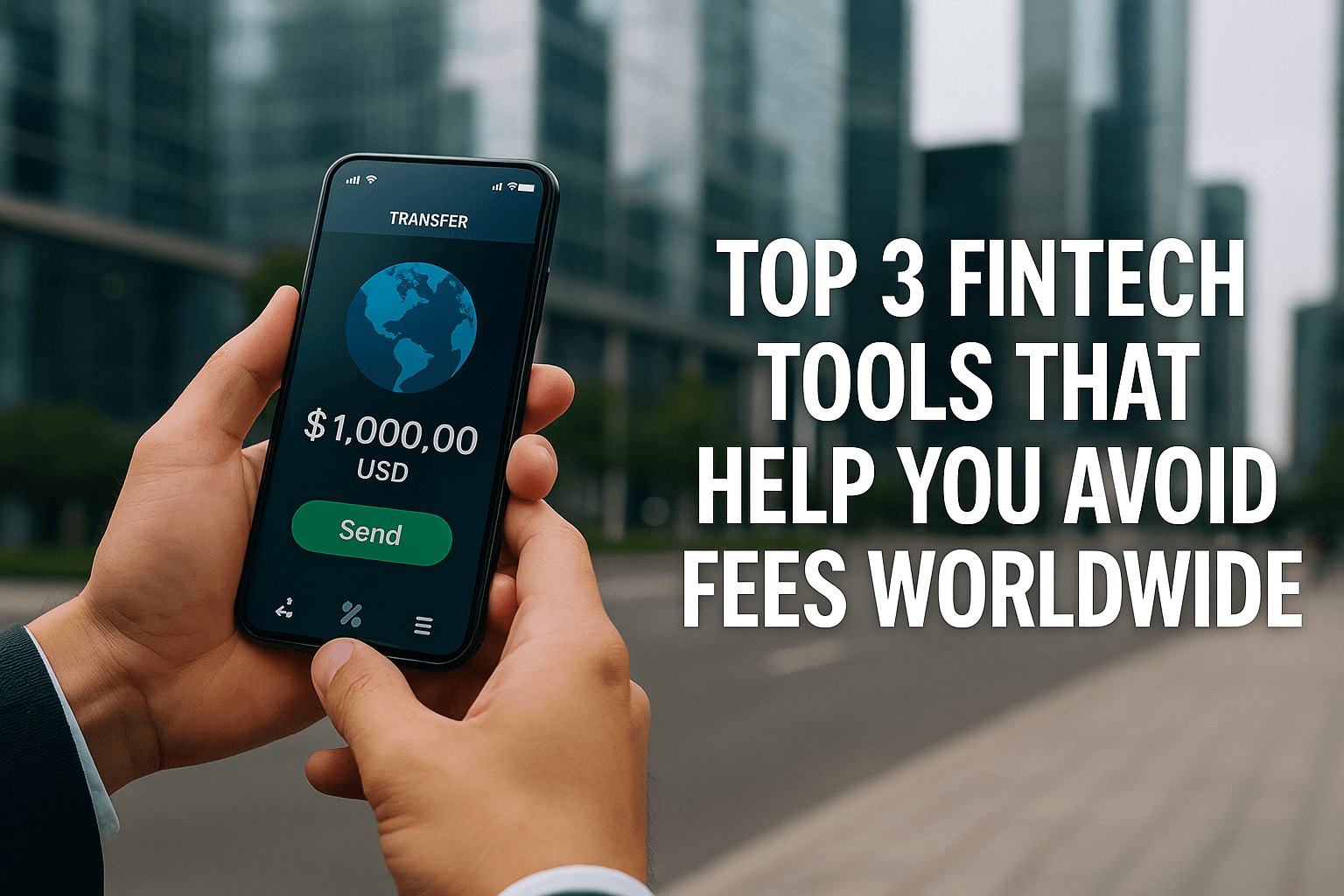A Legal and Strategic Guide to Keeping More of What You Earn
If you’re working remotely while living abroad, here’s the uncomfortable truth:
You may owe taxes to two countries at the same time—your home country and your current country of residence.
This is called double taxation, and it’s one of the biggest financial threats digital nomads, freelancers, and remote workers face in 2025.
But here’s the good news:
There are legal, globally recognized strategies to prevent it—and you don’t need to become a tax lawyer to understand them.
This guide walks you through how to:
- Know where you’re legally taxed
- Use tax treaties to your advantage
- Apply the FEIE (for Americans)
- Leverage residency rules smartly
- Structure your freelance income correctly
What Is Double Taxation?
Double taxation happens when two governments both claim the right to tax the same income.
For example:
- You’re a US citizen working remotely in Spain.
- The US taxes your worldwide income, no matter where you live.
- Spain, where you live more than 183 days, also taxes your income.
- Result: you’re double taxed unless action is taken.
It can happen with income tax, social security contributions, or both.
Step 1: Understand Your Tax Residency
Most countries define tax residency using one or more of the following:
| Rule Type | Explanation |
|---|---|
| 183-Day Rule | If you spend 183+ days in a country, you’re a resident |
| Center of Vital Interests | Where your family, business, or main assets are |
| Permanent Home | Where you keep a home or lease |
| Citizenship-Based | US is almost the only country using this model |
Knowing where you’re a tax resident is step one to understanding your exposure.
Step 2: Check If There’s a Tax Treaty
Tax treaties (Double Tax Agreements – DTAs) are signed between countries to prevent double taxation. They define:
- Which country has the right to tax your income
- How to avoid being taxed twice
- Where you should pay social security
Examples:
- UK & Australia: treaty gives taxing rights to country of residence
- US & Germany: income may be taxed in both, but credits prevent overlap
- Canada & Portugal: rules vary depending on income type
Use resources like the OECD Tax Treaty Database or your government’s website to check treaty terms.
Step 3: For Americans – Use the FEIE
The Foreign Earned Income Exclusion (FEIE) is the main way U.S. citizens avoid double taxation:
- Limit (2025): $120,000 of foreign earned income is exempt
- Requirements:
- Live outside the U.S.
- Meet one of two tests:
- Physical Presence Test: Outside the U.S. 330 days out of 365
- Bona Fide Residence Test: Live full-time in another country
You must file IRS Form 2555 to claim FEIE.
Also consider:
- Foreign Tax Credit (Form 1116): For taxes paid to a foreign country
- Housing Exclusion: Extra deduction if you pay rent abroad
Step 4: Structure Your Freelance Income Smartly
How you receive and categorize your freelance income affects taxation:
| Method | Tax Risk | Notes |
|---|---|---|
| Direct to home bank | High | Triggers tax in home country |
| Paid to foreign business entity | Lower | Reduces visibility to home tax authority |
| Paid via platforms (Upwork, Fiverr) | Medium | Often reported to governments |
| Paid into Wise / Payoneer | Moderate | Traceable but flexible |
| Invoiced from local business | Low (if legal) | May qualify for local tax-only treatment |
Tip: Open a local legal entity (e.g., Estonian e-Residency, UK LTD, etc.) if living long-term in one country.
Step 5: Watch Out for CFC Rules
Controlled Foreign Corporation (CFC) laws exist to stop tax avoidance via offshore companies.
If your home country has CFC laws, and you:
- Own 50%+ of a foreign business
- Keep profits overseas
…then you may still be taxed even if you don’t bring the money home.
Countries with CFC laws include:
- USA
- UK
- Australia
- Canada
- Germany
- South Korea
Solution:
Use tax-compliant jurisdictions and reinvest profits smartly. Get local tax advice if needed.
Step 6: Avoid These Mistakes
Assuming you don’t need to file tax anywhere
Staying too long in a country and becoming a surprise resident
Not checking your country’s treaties
Using your home address on all invoices and bank records
Failing to separate personal and business banking
Real-World Scenario
Lisa, a freelance UX designer from the UK, spent 10 months in Thailand and 2 in Spain.
She was taxed in the UK (home), but Spain counted her as tax resident.
Her Fix:
- Switched to Portugal, where UK has a favorable tax treaty
- Set up a local e-residency company for invoicing
- Filed UK return using foreign tax credit to avoid overlap
Result:
No double tax, fully legal, and she saved ~£8,000 in one year.
Quick Checklist
Know where you’re a tax resident
Check for a tax treaty
File for FEIE (if US citizen)
Use local business setup if possible
Track all earnings and taxes paid
Keep business/personal funds separate
Final Thought
As a remote worker or freelancer, you’re already crossing borders.
Your money shouldn’t get trapped between two governments.
By understanding double taxation and applying the right legal strategies,
you can work globally, live freely, and pay only what you legally owe—nothing more.
This isn’t tax evasion.
It’s financial intelligence for the modern world.


